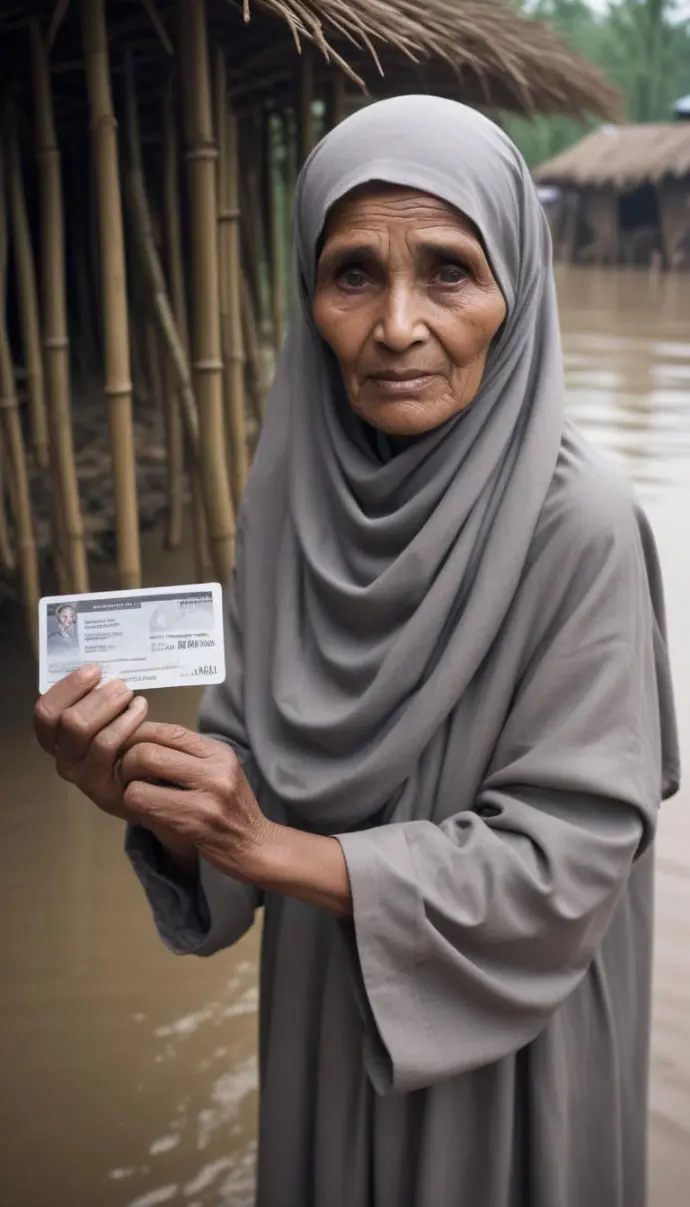The Digital Footprint: Data Use and Privacy in Refugee Management
In our feature article, "The Digital Footprint: Data Use and Privacy in Refugee Management," we'll explore in depth the complex relationship between data use and privacy in refugee management in armed conflict. Get ready for a deep dive into a comprehensive analysis that reveals current challenges and potential solutions in this crucial area. Read on to learn more about this exciting topic!




Introduction
In the context of refugee management, it is essential to address the relevance of data use and privacy in this area. The digital footprint, the handling of personal information, and the protection of human rights are crucial aspects that deserve thorough exploration and in-depth analysis. Below, these topics will be addressed from different perspectives to understand their impact on the protection of refugee rights.
A digital footprint refers to the trail left by online activity and the use of electronic devices. In the context of refugee management, the digital footprint becomes relevant in the identification, tracking, and protection of displaced persons. Digital data can provide crucial information about the whereabouts, needs, and interactions of refugees, which can contribute to more effective management of humanitarian crises.
The relevance of the digital footprint in refugee management also poses challenges in terms of privacy and security. It is essential to find a balance between the use of this data to provide assistance and protection, and respecting the privacy and security of refugees' personal information.
Furthermore, it is crucial to consider the psychological impact that constant tracking through digital footprints can have on refugees, as it can raise concerns about invasion of privacy and lack of control over their own information.
The data privacy context in the refugee context poses unique challenges due to the vulnerable nature of this population. The collection and handling of refugee personal data must be approached with special attention to protecting their privacy and security. Risks associated with the exposure of personal data in the refugee context include the possibility of discrimination, persecution, or misuse of the information for other purposes.
It is crucial to establish clear protocols and ethical standards for the collection, storage, and sharing of refugee personal data to ensure the protection of their privacy and avoid potential negative consequences resulting from the exposure of their personal information.
The lack of clear regulations surrounding refugee data privacy can expose this population to additional vulnerabilities, highlighting the need for data protection policies and mechanisms specifically designed to address the complexities of information management in the refugee context.
The impact of data management on the protection of refugees' human rights is significant and multifaceted. On the one hand, the effective use of data can contribute to better resource allocation, the identification of needs, and the provision of services tailored to refugees' specific circumstances, which can improve their well-being and protection.
On the other hand, improper management of personal data can expose refugees to additional risks, such as a lack of privacy, discrimination, or even violations of their fundamental rights. Therefore, it is critical to establish robust safeguards to ensure that data management is carried out in a manner that is ethical, transparent, and respectful of refugees' human rights.
The impact of data management on the protection of refugees' human rights is a complex issue that requires a balanced approach that allows us to leverage the benefits of information without compromising the privacy and security of this vulnerable population.
Fingerprinting in Refugee Management
Fingerprinting plays a crucial role in refugee identification and management worldwide. Through biometric data such as fingerprints, eye scans, and facial recognition, the identity of refugees can be established with a high degree of certainty. This is critical to ensuring that refugees receive the appropriate assistance, protection, and services to which they are entitled.
Fingerprinting is also essential to avoiding duplicate registration and protecting the integrity of refugee management systems. Having a reliable biometric database reduces the risk of fraud or misidentification, contributing to more efficient and secure management of the refugee population.
Furthermore, fingerprinting can be used to reunite families separated during the displacement process, bringing hope and relief to those separated from their loved ones due to conflict or humanitarian crises.
Biometric data, such as fingerprints, eye scans, and facial recognition, have become fundamental tools in refugee and displaced person management. These data allow humanitarian agencies and governments to accurately track the refugee population, facilitating the distribution of humanitarian aid, medical care, and the protection of fundamental rights.
Furthermore, the use of biometric data in refugee management helps ensure the safety and security of the displaced population. Having reliable identification systems reduces the risk of unauthorized individuals accessing services for refugees, thus promoting a safer and more controlled environment in camps and reception centers.
Furthermore, the use of biometric data allows authorities and humanitarian organizations to maintain an accurate record of the refugee population, which in turn facilitates long-term response planning and informed decision-making to address the specific needs of this vulnerable population.
While the use of biometric data in refugee management offers numerous benefits, it also raises important ethical considerations. It is crucial to ensure that the collection and use of this data is carried out transparently, respecting the privacy and dignity of displaced individuals.
Agencies and organizations working with refugees must implement strict data protection policies to ensure that the biometric information collected is used exclusively for the purpose of providing humanitarian assistance and protecting the rights of refugees. Furthermore, it is essential to obtain informed consent from individuals before collecting their biometric data, ensuring that they understand the purpose and scope of its use.
Finally, oversight and accountability mechanisms must be established to ensure that the collection and use of biometric data is carried out in an ethical and responsible manner, avoiding any form of discrimination or abuse in the processing of refugees' personal information.
The protection of privacy and individual rights is a crucial issue in the context of digital footprinting in refugee management. As biometric data, personal information, and movement records are collected, it is critical to ensure that these data are used in an ethical manner that respects human rights. Data collection and use must be supported by robust privacy policies that protect refugees' sensitive information, preventing its misuse or exposure to unauthorized third parties.
Furthermore, it is essential to establish safeguards to ensure that data collection and analysis respect the principles of informed consent and refugee control. This involves clearly informing those affected about how their data will be used, who will have access to it, and providing them with the opportunity to make informed choices about their privacy. Effective mechanisms must also be established so that refugees can access, correct, or delete their personal data in a timely and easy manner.
In this regard, refugee management agencies must work closely with data protection and privacy experts to develop robust regulatory frameworks that ensure the integrity and confidentiality of the information collected. Furthermore, it is essential to promote training and awareness about the importance of data protection and privacy among staff handling this information, as well as among refugees themselves, in order to foster a culture of respect and responsibility in the use of digital footprints in humanitarian settings.
Data Use and Privacy in Refugee Management
In the context of refugee management, data protection and privacy are highly relevant and sensitive issues. At the international level, there are specific regulations that seek to ensure the protection of refugee data. For example, the United Nations High Commissioner for Refugees (UNHCR) establishes clear guidelines on the protection of personal data in the context of humanitarian aid to refugees. These guidelines are based on fundamental principles of privacy and confidentiality, ensuring that data collection and handling are carried out ethically and securely.
Furthermore, international instruments such as the European Union's General Data Protection Regulation (GDPR), while not exclusively focused on refugees, also provide a solid legal framework for the protection of personal data, which positively impacts the management of refugee information in EU member states.
These international regulations seek to ensure that the collection, storage, and sharing of refugee data is carried out in a transparent, secure, and privacy-respecting manner, thereby establishing clear standards for information management in refugee settings.
Privacy protection and data management in refugee settings present significant challenges, especially in situations of humanitarian crises and mass displacement. One of the main challenges lies in the accurate collection and verification of refugees' personal information, as in many cases they lack official documentation or may have lost it during their flight. This can make it difficult to identify and protect their personal data.
Another major challenge is information security in refugee settings, where technological infrastructure may be limited and exposure to cyber risks and attacks is a constant concern. Ensuring data confidentiality and integrity in these contexts represents an additional challenge for organizations and entities responsible for refugee management.
Furthermore, the lack of harmonized data protection regulations and standards across different countries and regions can hinder the secure transfer of refugee information between entities, creating obstacles to the provision of cross-border assistance and services.
Given the challenges faced by privacy protection and data management in refugee settings, it is essential to explore alternatives that guarantee the privacy and security of information. One such alternative is the use of encryption and information security technologies to protect refugees' personal data, minimizing the risk of unauthorized access to sensitive information.
Furthermore, the implementation of ethical and transparent data management protocols that involve refugee communities themselves in decision-making regarding the handling of their personal information can be an effective way to ensure respect for their privacy and autonomy.
Furthermore, collaboration between governments, international organizations, NGOs, and private sector entities is essential to establish common standards for data protection and privacy, promoting international cooperation in the secure and ethical management of refugee information.
Impact of Data Management on Global Human Rights
Data management in the context of refugee human rights protection is an issue of growing importance. Data collection and analysis can be critical to understanding refugee needs and designing and implementing effective responses. The availability of accurate and up-to-date data can help ensure that refugees receive the necessary assistance and have access to their fundamental rights.
Furthermore, it is crucial to consider the privacy and security of the collected data, as refugees' personal information must be handled with the highest level of confidentiality and protection. The relationship between data management and the protection of refugee human rights requires a careful balance between effective information collection and safeguarding individual privacy.
Furthermore, it is important to note that data management can also have implications for humanitarian decision-making, which can directly impact the lives of refugees.
Data management in the refugee context can significantly influence humanitarian decision-making. Data analysis can provide key insights into the specific needs of refugees, which in turn can inform resource allocation and the implementation of assistance programs. For example, detailed demographic data can help identify vulnerable groups, such as pregnant women, unaccompanied children, or people with disabilities, enabling a more targeted and effective response.
Furthermore, data analysis can reveal trends and patterns that influence long-term decision-making, such as the planning of education, health, and employment programs. However, it is critical that data collection and use be carried out ethically and with full respect for the privacy and dignity of refugees.
Data management in humanitarian decision-making also poses challenges related to information interpretation, data accuracy, and transparency in the use of collected information. These aspects must be carefully considered to ensure that the decisions made have a positive impact on the lives of refugees.
The use of data for refugee protection raises important legal and ethical considerations. In many cases, the collection and handling of refugees' personal data is subject to privacy and data protection laws. It is crucial that all data management activities adhere to applicable legal regulations and respect the fundamental rights of refugees.
Furthermore, from an ethical perspective, the use of data in the refugee context must be governed by the principles of non-maleficence, beneficence, justice, and respect for autonomy. This implies that data management must be transparent, take into account refugees' informed consent, and ensure that the benefits outweigh any potential risks or harms.
The use of data for refugee protection must be framed by legal and ethical considerations that safeguard the rights and dignity of displaced persons.
Conclusions
Protecting data privacy in refugee management is of utmost importance in an increasingly digital world. Refugees, fleeing their countries of origin, rely on the organizations that assist them to protect their personal information. Ensuring data privacy is not only an ethical requirement but also essential to preserving refugees' dignity and safety.
Ethical and human rights-respecting data management is critical to ensuring that refugees are not vulnerable to exploitation, discrimination, or persecution. Organizations working with refugees must adopt robust and transparent practices to collect, store, and use information securely and ethically. Furthermore, raising awareness about the importance of data privacy in refugee management, both locally and globally, is crucial to ensure that the fundamental rights of these displaced people are respected.
Protecting data privacy and ethical information management are essential to ensuring that refugees receive the assistance they need without compromising their safety and dignity. The implementation of sound policies and practices in this regard is essential to preserving the human rights of those who have had to flee their homes in search of protection and refuge.

 IHRO NEWS
IHRO NEWS